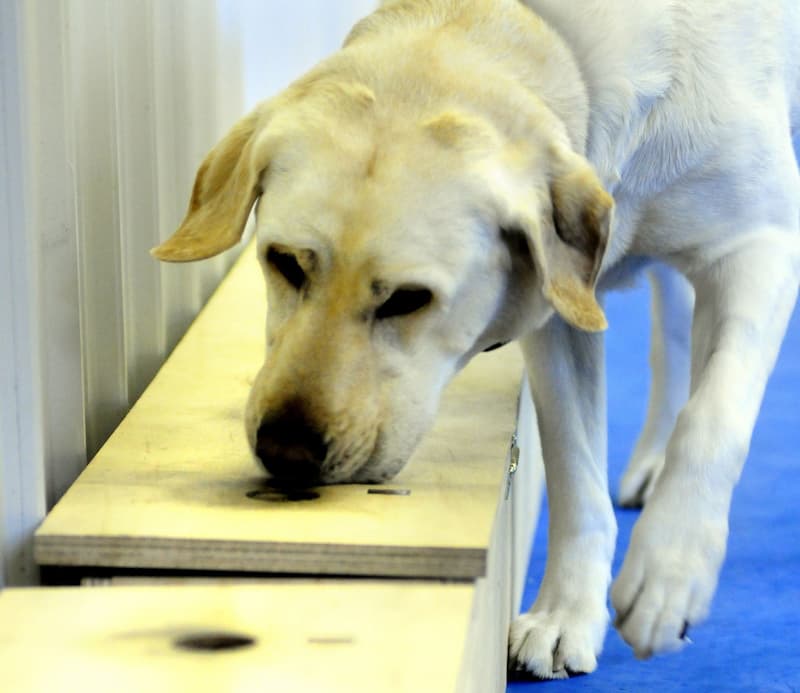Can dogs smell cancer in humans? Dogs are known for their powerful sense of smell. Some people believe that dogs can even smell cancer in humans. Is this true? And if it is, what implications does this have for cancer diagnosis and treatment? In this article, we will explore the science behind canine cancer detection and discuss the potential benefits of using dogs to sniff out cancer cells.

There is a lot of discussion about whether or not dogs can smell cancer in humans. Some people believe that they can, while other people think it’s just a myth. The truth is, no one really knows for sure. However, there are some studies that suggest dogs may be able to detect cancer at an early stage. In this blog post on can dogs smell cancer, we will discuss the evidence that suggests dogs can smell cancer, and we will also talk about what this could mean for the future of cancer detection!
Can Dogs Smell Cancer in Humans
There is no definitive answer to this question. However, there is some evidence that suggests dogs may be able to detect cancer at an early stage. One study found that dogs were able to sniff out skin cancer with accuracy rates of up to 97%. Another study found that dogs could detect ovarian cancer with 98% accuracy.
These studies are promising can dogs smell cancer, but it’s important to note that they are small and more research is needed to confirm the results, also see dogs afraid of thunder. However, if dogs can indeed smell cancer, it could have major implications for cancer diagnosis and treatment.
Cancer is notoriously difficult to detect at an early stage. By the time symptoms appear, the disease has often progressed too far for treatment to be effective. If dogs could be used to detect cancer at an early stage, it would give doctors a much better chance of catching the disease before it becomes untreatable.

In addition, dogs have an incredible sense of smell. They can sniff out things that humans can’t even begin to detect. This means that they could potentially be used to sniff out cancer cells that are still too small to be detected by traditional methods like X-rays or CT scans.
The bottom line on can dogs smell cancer, we don’t know for sure if dogs can smell cancer in humans. However, the evidence that does exist is promising. If further research confirms that dogs can indeed detect cancer, it could have major implications for the future of cancer detection and treatment.
How Do Dogs Act When They Smell Cancer?
If you’re wondering how dogs would act if they could smell cancer in humans, the answer is that we don’t really know. Dogs are not trained to detect cancer in the same way that they are trained to sniff out drugs or explosives.
However, there have been some reports of dogs acting strange around people who later turned out to have cancer. For example, one woman reported that her dog would sniff her breast aggressively and then back away from her. She later found out that she had breast cancer.
Another woman reported that her dog kept sniffing at a mole on her leg. The mole turned out to be melanoma, a type of skin cancer.
These stories are anecdotal and they don’t prove that dogs can smell cancer. However, they are interesting to consider. If further research confirms that dogs can detect cancer, it’s possible that we will be able to train them to act in a specific way when they sniff out the disease.
Benefits of Using Dogs to Smell Cancer
There are many potential can dogs smell cancer benefits of using dogs to smell cancer. First of all, dogs are non-invasive. This means that they can be used to screen for cancer without causing any pain or discomfort to the patient.
In addition, dogs are relatively inexpensive and easy to train. They can also be used to screen large numbers of people in a short period of time. This is important because early detection is critical for successful cancer treatment.
Finally, dogs have an incredible sense of smell. This means that they could potentially be used to detect cancer cells that are too small to be detected by traditional methods like X-rays or CT scans. For more information visit our german shepherd website.
